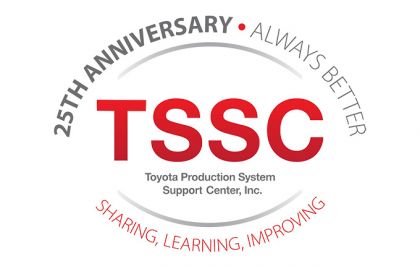Boosting Production and Protecting the Environment, All in a Day's Work.
30 August 2018
APC will partner with Toyota Production Centre to implement the Toyota Production System to improve production efficiency and reduce waste.

We’re excited to partner with Toyota Production System Support Centre (TSSC) to implement the Toyota Production System (TPS), which will not only benefit our customers but will have a positive impact on the environment.
APC is doing everything we can to leave an eco-positive footprint, and by implementing the TPS we’ll not only be able to produce high-quality goods with a short lead time but reduce scrap on the manufacturing floor.
TSSC will make several visits to our Perth facility over the course of six months to review APC’s business processes, including supplier and customer interactions.
TSSC will make suggestions on how to achieve our goal of becoming a company which: places our customers first; understands our people are our most valuable resource; has a shop floor focus; continues to minimise our environmental footprint; and embraces Kaizen, an approach to creating continuous improvements based on the idea small, ongoing positive changes can make major changes.
TPS seeks to increase team member, machinery and material productivity. TPS examines what adds value, by reducing everything that is not adding value and aims to eliminate the issues of overburden, inconsistency, and waste. The philosophy is mostly derived from the TPS House.
The two main pillars of the TPS House are:
- Just in Time (JIT) – a methodology which aims to increase efficiency and decrease waste by receiving goods only as they are needed in the manufacturing process. JIT avoids the waste associated with overproduction, waiting for the material and holding excess inventory. JIT means making only what is needed, only when it is needed, and only in the amount that is needed.
- Build in Quality/Jidoka – the manufacturing principle that ensures quality is automatically built into a production Process. With the help of Jidoka, it is possible to immediately identify and correct deviations in the production process. When something goes wrong in the automation it leads to faulty production. Jidoka pauses the production process as soon as the error arises, so there will not be a build-up of errors. Both the employee and machine have the autonomy to pause a production process when a defect has been signalled. The concept was first used in 1896 by Sakichi Toyoda, the founder of Toyota Boshoku Corporation and Toyota Industries which eventually spawned the Toyota Group. He invented a textile loom that would stop automatically when it came across a defective thread.
The TPS framework for conserving resources by eliminating waste includes examining:
- Waste of overproduction (largest waste)
- Waste of time on hand (waiting)
- Waste of transportation
- Waste of processing itself
- Waste of Stock at hand
- Waste of movement
- Waste of making defective products
- Waste of under-utilised workers
Our first step will be to develop a customer first mindset by increasing DIFOT to 100 per cent within nine months. DIFOT (Delivered in Full, On Time) is a key performance indicator, examining products and service delivery from the customer’s point of view.
Outlined strategies include visualising daily performance and determine a plan vs actual, establish a daily cross-functional team meeting, initiate structured problem solving (root cause analysis and countermeasure activity) and map/visualise the ordering process.
APC looks forward to working with TSSC during the next few months as we implement the TPS. With the hope of our customer base being able to notice the differences coming from an increase in DIFOT, whilst producing high-quality goods with a shorter lead time and decreased waste. Stay posted for further updates as we progress along this journey.